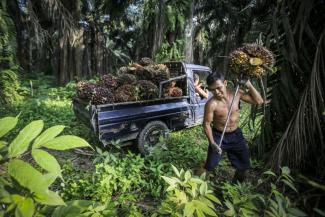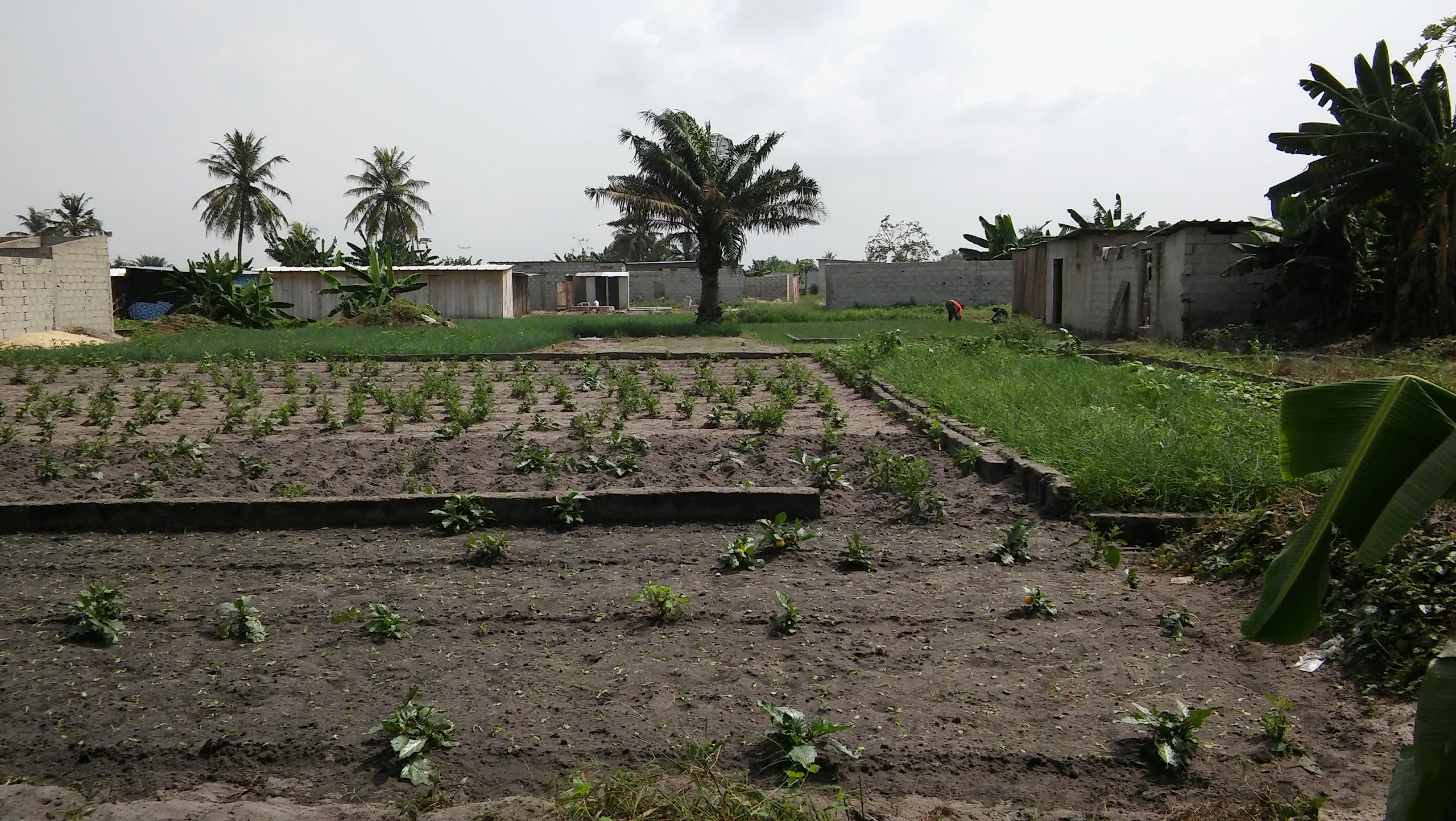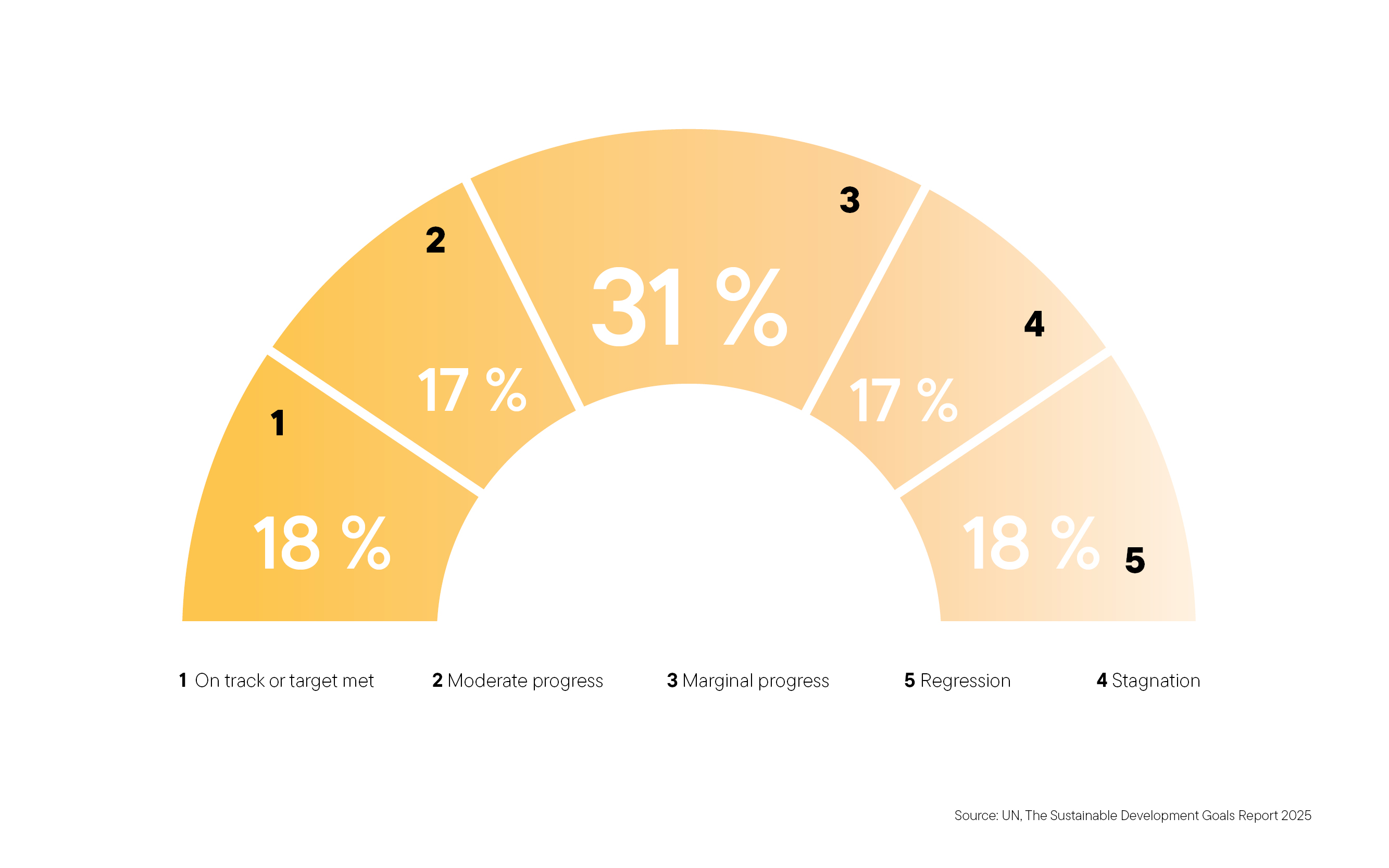Agriculture
Big palm oil is making the rules

“Almost everything contains palm oil: chocolate, margarine, bread, chips, pizza, body lotions and cleaning detergents, for example,” says Akua Britwum. The Ghanaian scholar states that, to meet growing demand, palm oil companies are expanding their operations, contracting small-holder farmers and buying land.
Palm oil has become one of the most important globally traded goods. According to the environmental lobby group WWF, some 60 million tons were produced worldwide in 2015. The reddish-brown oil is not only used to make food items, drug-store products and pharmaceuticals. Five percent of the global harvest is used for energy purposes, generating electric power and heat, for example, or for the production of biofuels.
Growing demand has changed agriculture, for instance in Ghana. This West-African country is best known to be cocoa producer, but its farmers are increasingly cultivating other cash crops, including palm oil and cotton. Typically, oil palms are planted in out grower schemes. Outgrowers are smallholder farmers who work on behalf of corporate partners. All too often, the farmers have no choice. Unless they cooperate with the palm oil giants, they stay excluded from the world market.
In Ghana, outgrowers sign commitments to sell their entire harvest to the Ghana Oil Palm Development Company (GOPDC), a privatised corporation. The World Bank and the OECD (Organisation for Economic Co-operation and Development) promote its model as a way to boost agriculture in developing countries and link smallholders to global trade. However, working for the COPDC is not always beneficial. While the GOPDC is expanding, Britwum reports, labour conditions are deteriorating and the rights of outgrowers are being diminished.
Loose agreements
Sometimes, contracts are written, but in other cases, there are only oral agreements. The difference between outgrowers and other contract farmers is that outgrowers own some land, whereas contract farmers work on property owned by the GOPDC. The corporation provides seed, credit and pesticides. It is the more powerful partner. “It defines the price it pays per kilogram,” Britwum recently told a conference held at Free University Berlin, “and the farmers do not get a proper receipt.” The production volume is determined by the GOPDC too. If farmers do not deliver accordingly, the company makes them pay fines.
Civil-society activists are up in arms. Action Aid, the South Africa based international non-governmental organisation, reports that farmers in southern Africa do not only work for very little pay, but also bear all the business risks. The INGO has scrutinised many contracts and found that relevant issues regarding rights and duties remained unclear. It bemoans that time spans are often not defined precisely. The same is said of the production amounts farmers are supposed to deliver at the end of the season.
In Ghana, moreover, the outgrower model excludes marginalised people: those who have no title to land, including subsistence farmers and women, who can only own land via their husband or some male relative. According to Britwum, some contract farmers have managed to improve their fate nonetheless. They put pressure on the COPDC, demanding that the corporation improve the local infrastructure, for instance by building schools or investing in water and power supply.
What made them strong was researching world market prices on the internet. Such information boosts their bargaining power when they sell their harvest. The GOPDC has become increasingly more cooperative, the scholar says: “The management understands that it depends on the farmers.” Without them, it cannot achieve production goals and meet global demand.
Rising demand, rising profits
Palm oil demand is growing particularly fast in China and India, the world’s two most populous countries, where masses of people get their daily fat intake in the form of palm oil. Demand for biofuels matters too. Compared with other oil seeds, palms require little space. To produce the same amount of biofuels with soy beans, one would need six times as much land.
In Malaysia and Indonesia, huge forests are being cut down so oil palm plantations can be established. The two Southeast Asian nations now account for more than 85 % of global production. The land used for plantations has increased tenfold since 1990, and the trend is unbroken. The WWF reckons that Indonesia is planning to increase plantations to 20 million hectares in the next 10 years.
Huge monocultures do not only endanger biodiversity, they also undermine the livelihoods of local communities. “The substantial profit margins in the global supply chain come at the expense of Indonesian labourers,” says Oliver Pye of Bonn University. On the world market, a ton of pure palm oil currently costs about $ 700. The workers, however, only get the equivalent of $ 30 per ton. The social scientist is doing research on how to improve Southeast Asian palm oil production in social and environmental terms.
He says that the world region is raking in huge profits, but poverty is worsening nonetheless. In Pye’s eyes, the reason is that migrant workers are paid poorly, whether they work on private-sector or state-owned plantations. Indonesia’s average monthly wage is less than the equivalent of € 100. Informal daily labourers in Malaysia only earn one euro per day. Pye estimates that there are about 1 million migrant labourers in Malaysia, and about half of them are not registered.
Bottom-up change
So far, it has proved difficult to establish strong trade unions, the scholar says. When workers resist plantation managers, they are often fired or arrested. Researchers know cases of corporate leaders cooperating with both the police and criminals to intimidate workers. Nonetheless, migration patterns have resulted in emerging networks that workers can rely on, sharing information on pay, housing and labour conditions, for instance.
Increasingly, workers are collectively gaining traction. One example was the Roundtable on Sustainable Palm Oil (RSPO) in Medan in 2013. Hundreds of workers used the event for protests. The RSPO was launched in 2004 as a joint initiative of the WWF, major companies of the palm oil sector, food-producing corporations, banks and civil-society activists. The goal was to ensure the sustainability of palm oil production. To get RSPO certification, producers must live up to certain standards that relate to social, environmental and business concerns. In the eyes of the protesting famers, these standards are insufficient. In 2015, Pye says, a transnational network of labour movements has been emerging in Indonesia and Malaysia.
Pye has done several years of field research. One of his interview partners told him: “In a world, in which we would not have to migrate to Malaysia, we’d be unemployed, and Malaysia would still have its rainforests.” In Pye’s view, this statement points to what needs to happen. Change can only be brought about from the grassroots level, he argues, and a smallholder system would be the goal. Farmers would use less land so less rainforest would be destroyed. Jobs would not be lost since agriculture is more labour intensive if it is not done at an industrial scale. In view of huge profit margins, moreover, farmers’ incomes could still be raised. An essential issue, according to Pye, is that farmers should work on their own soil.
Theresa Krinninger
Link
Pye, O., Daud, R., Manurung, K., and Siagan, S., 2016: Workers in the palm oil industry – exploitation, resistance and transnational solidarity. Stiftung Asienhaus, Köln.
http://www.asienhaus.de/archiv/user_upload/Palm_Oil_Workers_-_Exploitation__Resistance_and_Transnational_Solidarity.pdf














